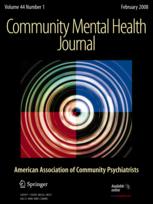Headline
A community-based care transition and management intervention showed improved outcomes for patients transitioning to outpatient community care following a psychiatric hospitalization.
Context
Patients discharged from a psychiatric hospitalization may experience frequent readmissions, symptom regression, and other poor outcomes. Pathway Home, a time-limited, community-based care transition program created by Coordinated Behavioral Health Care and implemented across New York State, has shown promise in improving outcomes in at-risk populations and promoting safety when individuals are moving from different levels or settings of care. This study assesses the impact of a nine-month Pathway Home intervention for individuals with high utilization of psychiatric inpatient services.
Findings
Using Medicaid claims data of 40 graduates of the Pathway Home program, the researchers found significant decreases of psychiatric inpatient days per month from 7.1 before the intervention to approximately 1.8 during the intervention. Inpatient days did not increase substantially for an average of 11 months after the intervention. Outpatient visits increased from 45 percent to 76 percent during enrollment and 67 percent post-enrollment, and health home care management services use also increased. There was no change in psychiatric emergency room visits.
Takeaways
Providing transition support to community settings following psychiatric hospitalizations can improve outcomes for people with serious mental illness.


